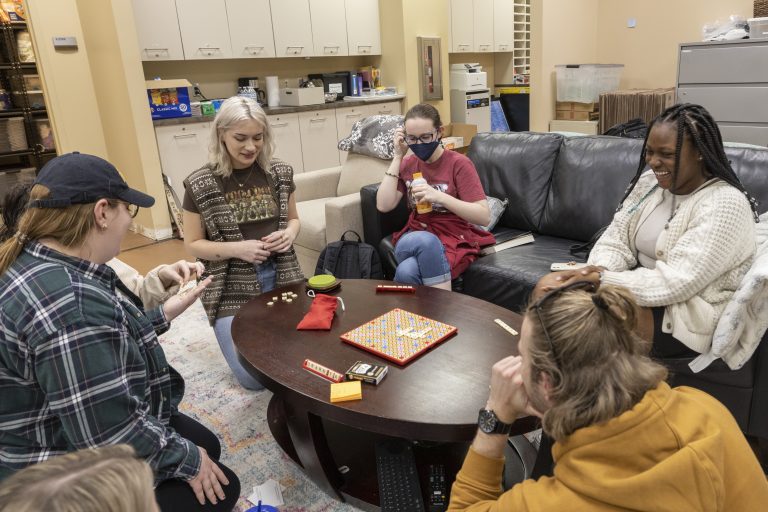From pain to prevention

By Jesse Berlin
This story was originally published April 19, 2022.
A flyer caught Grace Nielson’s attention as she gave a Mizzou campus tour to incoming students. The Relationship and Sexual Violence Prevention (RSVP) Center was looking to recruit students to deliver presentations on sexual and intimate partner violence.
“Freshman year, I was assaulted,” Nielson said. “When I found out about the RSVP Peer Educators, I decided that my story would no longer be a source of pain but a medium for prevention advocacy…Joining [the program] was a way of taking back control I felt like I had lost.”
As an RSVP peer educator, Nielson now speaks to classes, fraternities, sororities and other student groups that request a range of topics including stalking, rape culture, recognizing and safely stopping relationship violence and supporting a loved one who’s a survivor.
“I really wanted to find a space for myself … [and] advocate for other survivors on our campus,” Nielson said. “Finding the opportunity to get to do that in such a supportive and such a welcoming space was really just a dream come true.”
Whether she’s celebrating exciting news with the center’s staff, being comforted by her co-workers when she’s feeling down or bonding with them over activities like trivia night, she feels accepted.
“You can be authentically yourself no matter what that looks like,” she said.
Groups can request these presentations through the RSVP Center website. The RSVP peer educators also hold weekly presentations open to everyone.
“We give these presentations not just to teach and not just to lecture, but to change lives,” Nielson said. “We say, ‘Hey, this is what’s wrong, and this is how we should fix it’ … That’s how you make the first steps into creating a safer culture on campus.”
There’s also a benefit, Nielson says, to these presentations being delivered by students.
“There’s no power structure between peers,” she said. “You’re just having a fellow classmate talk to you and have a conversation with you about these hard subjects … That’s so much more personable, and it’s so much easier to make that connection.”
The RSVP Center also helps students who have experienced sexual violence, harassment, intimate partner violence or stalking with medical or mental health services, safety planning, legal advocacy, housing and transportation assistance and connections to campus resources.
RSVP Center Learning and Development Coordinator Patrick Skrivan says it’s important that students decide for themselves how they wish to proceed, with the center there to provide support.
To connect with the RSVP Center, students can email RSVP@missouri.edu, call at 573-884-5780 or walk into their office in G216 MU Student Center from 8 a.m. to 4 p.m. Monday through Friday. Scheduled appointments are preferred.
“So many people are scared of even coming forward or don’t know how to come forward or don’t even acknowledge and recognize that what happened to them was violence,” Skrivan said. “Us being here shows them and shows everyone else that Mizzou is here, Mizzou knows this is a problem, not just here but everywhere, and we’re committed to doing our part to end and prevent violence from happening.”